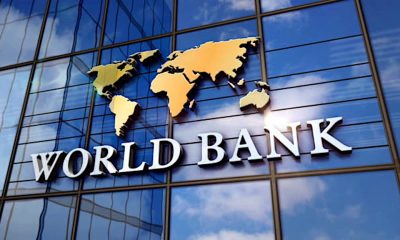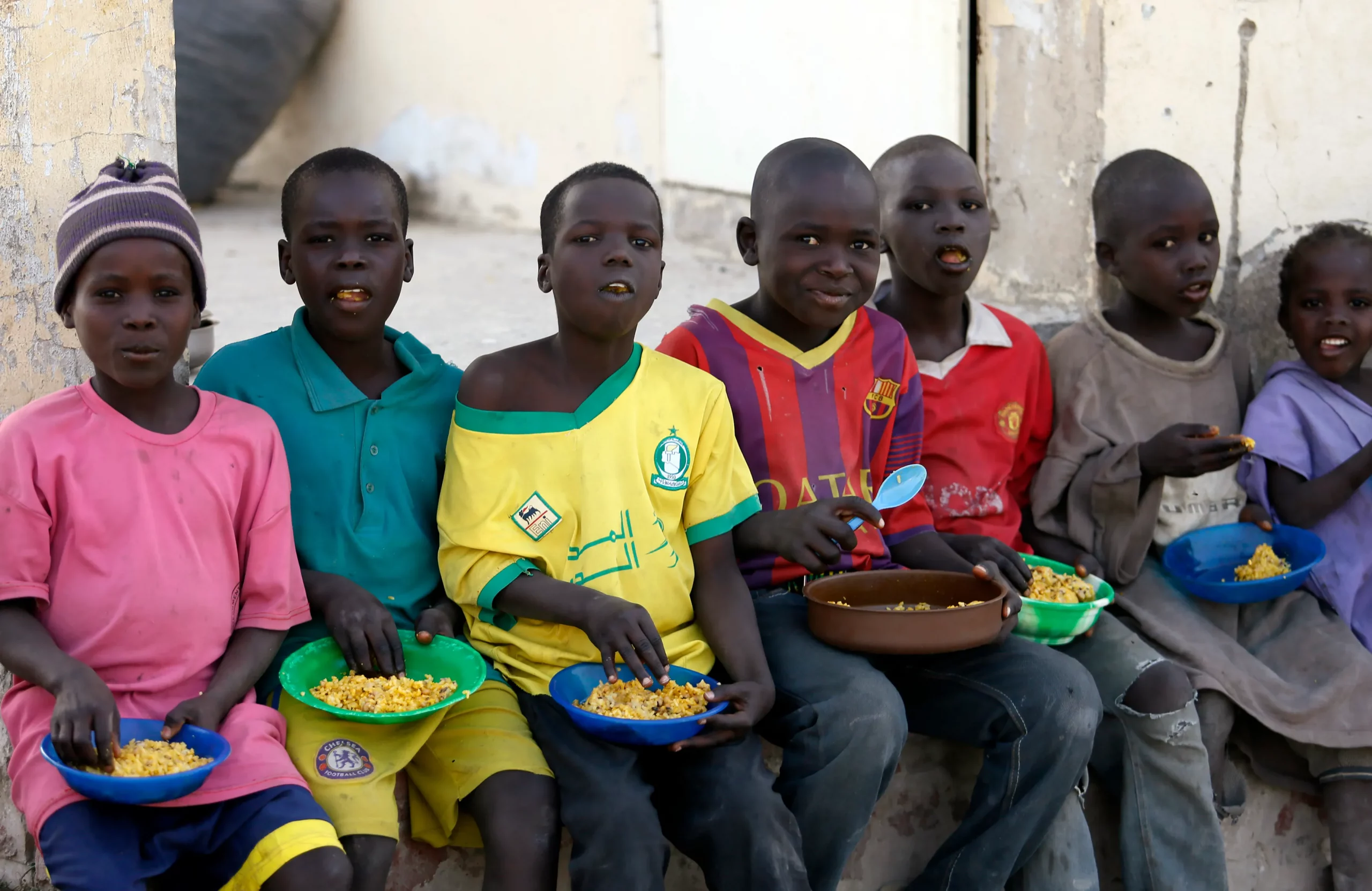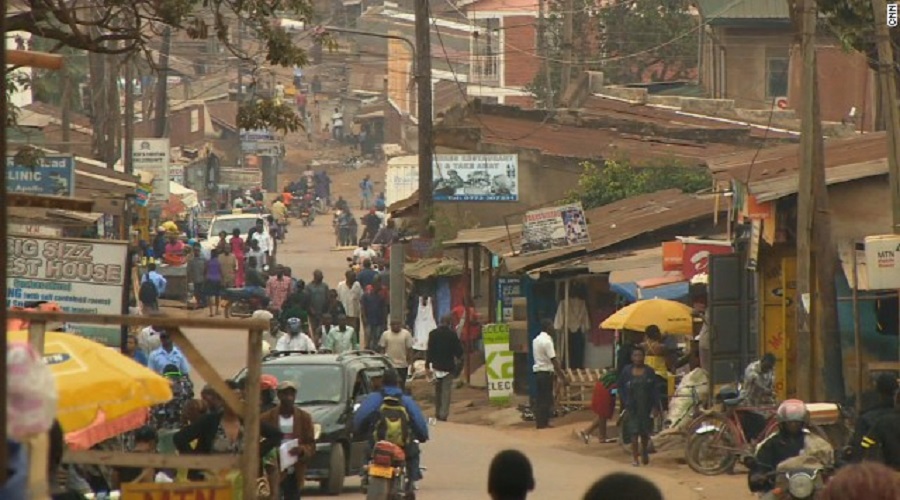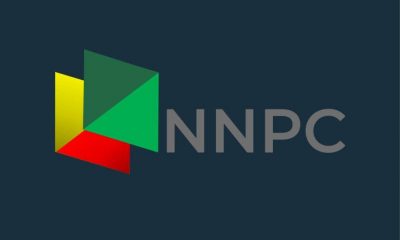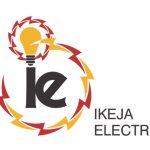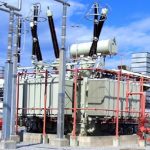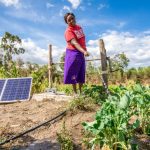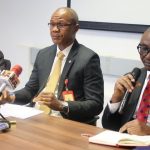Economy
$30b Loan: IMF, World Bank Pressure Buhari For Economic Blueprint
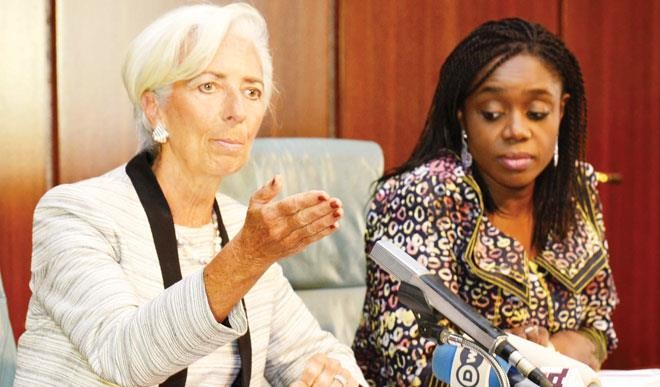
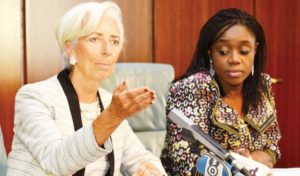
By Modupe Gbadeyanka
President Muhammadu Buhari has been told come up with an economic blueprint as he seeks to borrow money to reflate the Nigerian economy, which is still in recession.
Recently, Mr Buhari wrote the National Assembly, seeking their approval to borrow $29.96 billion from the World Bank and the International Monetary Fund (IMF).
This is presently generating mixed reactions from Nigerians, who do not understand why the Federal Government wants to embark on such when the government had claimed in the past that it has recovered huge amount of money allegedly looted by the immediate past administration of Goodluck Jonathan.
But the latest report is that both the World Bank and the IMF are pilling pressure on Mr Buhari to come up with an economic blueprint, if its drive for foreign loans was not to be stalled.
Vanguard gathered that officials of both financial institutions have questioned the Minister of Finance and her team over the absence of a blueprint for which the loans being sought would be utilised.
Sources at the Presidency said at the last IMF/World Bank Group Annual Meetings, that the Nigeria team was asked to produce an economic blueprint for which the IMF/World Bank Group will offer support.
Specifically, Vanguard learned that the US Secretary of Finance and that of the United Kingdom, told the Nigerian team that without a comprehensive economic blueprint, Nigeria would not get support from IMF and the World Bank.
The source said that usually, the IMF asks countries for what it called Policy Support Instrument (PSI), an instrument which serves as a document through which the multilateral institution monitors the economic progress of the country they support.
The source further said that during the Obasanjo administration, the NEEDS document was the Policy Support Instrument used to negotiate debt relief. The source also said the World Bank Group was interested in such a document as a means of evaluating its recently launched Sustainable Development Goals.
It was also learned that at the various road shows in London, foreign investors had asked Nigerians for an economic blueprint. Such an economic framework, they argued, aside from addressing the current challenges, would go a long way to engender confidence in both local and international investors on the way forward.
The source said this had become very imperative, given that investor-perception of Nigeria’s outlook was critical to its economic recovery.
At the moment, the Federal Government has not been able to come up with such a policy document.
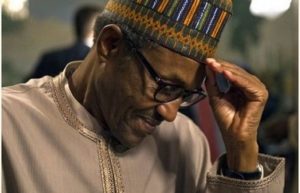
But in reaction to Vanguard’s enquiry a presidential aide said the present administration was working on a comprehensive economic blueprint that would soon be ready for launching.
The source, who said the issue of economic blueprint had become very contentious in government circles, said the economic management team had produced a blue print that will be launched soon. Stressing the need for an economic blueprint last week, Dr Obadiah Mailafia, a former deputy governor of the Central Bank of Nigeria (CBN), advised the Federal Government to produce a comprehensive economic blueprint to fast track economic growth and development.
Mr Mailafia gave the advice while speaking as a guest lecturer at the Federal Radio Corporation of Nigeria, FRCN, 2016 Annual Lecture in Abuja.
In the lecture, entitled Fighting Corruption and Growing a Sustainable Nigerian Economy, Mr Mailafia appealed to President Muhammadu Buhari to listen to the right advice that would help fix the nation’s economy within a short time.
“Nigerians are getting impatient and they are complaining that this change is not translating into what they are hoping for.
“We must do what we have to do to rescue our economy and to get the great Nigerian people back to work,” Mr Mailafai said.
He also advised the government to create an entrepreneurial state by encouraging innovation and generating critical public goods that would support creativity and high level productivity.
Besides, he urged government to pursue economic policies within the framework of a coherent and credible development strategy, with a greater coordination between fiscal and monetary authorities.
He said: “Sadly, we noticed that Nigeria does not have an economic administration. The British Chancellor of the Exchequer, for example, has at his beck and call some 300 highly well-trained economists in the Treasury.
“Their job is to worry day and night about the economy, monitor key trends, analyse critical developments and proffer policy. We need to build such an administration, in addition to strengthening the National Economic Management Team that has become virtually comatose.
“We cannot continue to blame previous administrations.
“We can only hope like the great Franklin Roosevelt in America of the 1930s and like Barack Obama during the height of the Great Recession.
“Our President needs a brains trust of people who love Nigeria passionately and are ready to do what it takes to take us to the path that destiny has ordained for us,” the ex-CBN deputy governor said.
Debt Management Office (DMO), which is charged with the responsibility of borrowing on behalf of government, had said in its Debt sustainability report for 2016 “There is an urgent need for the Government to formulate an Economic Blueprint or Road-Map for the medium-term.
“Aside from addressing the current challenges, it would go a long way to engender confidence in both local and international investors on the way forward. This has become very imperative, given that investor-perception of a country’s outlook is critical to its economic recovery.
“It is advisable that the Federal Government sustains the on-going reforms and initiatives in the various key sectors of the economy, including agriculture, education, housing, power, and transportation, as this would foster the needed inclusive economic growth and development.
“The passage of the Petroleum Industry Bill (PIB) by the National Assembly is long overdue and should be given speedy attention by the authorities.
“Its passage is expected to liberalise the oil and gas sector, and thus, attract more investments into the sector, which will have positive multiplier effect on the economy. Given that in the short to medium-term, oil would still remain a key revenue earner of the nation, the Federal Government is encouraged to continue on its efforts to curtail crude oil production disruptions in the oil producing areas.
“In view of the country’s huge infrastructure requirements, the Federal Government is enjoined to creatively explore other alternative and viable sources of financing critical infrastructure development outside the routine budgetary process.
“These may include the setting up of an Infrastructure Development Fund, the issuance of Infrastructure-tied Bonds, as well as encouragement for the private sector to participate in funding viable infrastructural projects through Public-Private-Partnership arrangements.
“As part of the initiatives for boosting revenue, the Federal Government is encouraged to fast-track the process of liberalising the exploration of the solid minerals deposits across the country. This is to make the sector much more attractive and competitive, and further expand the non-oil revenue base.
“As part of government’s commitment to encouraging private sector participation in the development of the economy, the demand for FGN Guarantees may likely increase. In order to instil discipline and discourage frivolous requests that may unduly expose the Federal Government, it is also recommended that the issuance of FGN Guarantees to the private sector should attract appropriate fees, and should be within an established framework.”
Former President Olusegun Obasanjo weekend also kicked against the plan by the Federal Government to obtain a $29.96 billion foreign loan.
Mr Obasanjo was said to have phoned the Minister of Finance, Mrs Kemi Adeosun, shortly after the media reported the loan bid, which the Federal Government explained would be used to finance critical infrastructure deficiency between now and 2018.
But the Finance Minister, it was learned, told an alarmed Mr Obasanjo that she would pay him a visit to explain the rationale for the plan, which had triggered mixed reactions on the necessity or otherwise of such loan.
The former president, it was gathered, spoke on the proposed foreign loan when he received members of a political association, The National Patriots’ Movement of Nigeria (NPMN), led by the national coordinator, Chief Dosu Oladipo, at his Hilltop residence in Abeokuta, the Ogun State capital, on Friday.
Mr Obasanjo, it was learned, not only opposed the loan bid, but also threatened to draw a battle line with the Federal Government should it go ahead to obtain the loan which he said could have far-reaching negative effects on the nation.
While some experts have advised the government to deploy part of the funds reportedly recovered from allegedly corrupt politicians in the last political dispensation to such purpose, others claimed the loan could be raised internally.
It will be recalled that the Mr Obasanjo led administration had successful negotiated with Western nations to write off $12.5 billion foreign debt to the Paris Club, a body of European creditors during his tenure.
However in justifying the proposal for the N29.96 billion external loan, President Muhammadu Buhari, had in a letter to the National Assembly said, “The total cost of the projects and programmes under the borrowing (plan) is $29.96 billion made up of proposed projects and programmes loan of $11.274 billion, special national infrastructure projects, $10.686 billion, Euro bonds of $4.5 billion and Federal Government budget support of $3.5 billion.”
But Nigeria’s foreign reserves have dipped lately, ostensibly owing to economic recession and intense pressure on Nigeria’s naira as a result of the scarcity of United States dollars.
Economy
Tinubu Approves New Incentives for Shell’s $5bn Bonga South West project
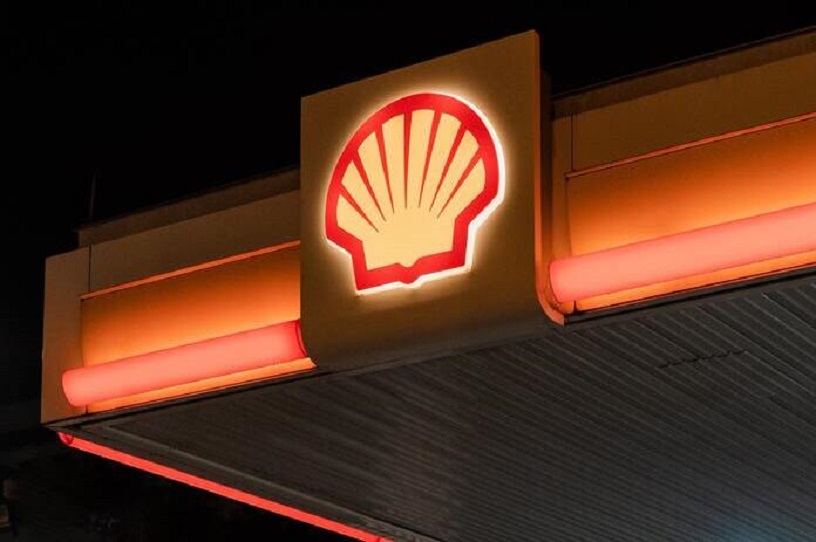
By Adedapo Adesanya
President Bola Tinubu has approved targeted incentives to unlock Shell’s long-delayed $5 billion Bonga South-West deep-offshore oil project.
The approval came while receiving a Shell delegation led by its Global Chief Executive Officer, Mr Wael Sawan, at the State House, Abuja, on Thursday.
According to the President’s Special Adviser on Media and Public Communication, Mr Sunday Dare, the approved incentives are “disciplined, targeted, and globally competitive,” designed to attract new capital without undermining government revenues.
“These incentives are not blanket concessions. They are ring-fenced and investment-linked, focused on new capital and incremental production, strong local content delivery, and in-country value addition. My expectation is clear: Bonga Southwest must reach a Final Investment Decision within the first term of this administration.”
The Bonga Southwest project, located approximately 120 kilometres offshore Nigeria in water depths exceeding 1,000 metres, has been stalled for over a decade due to fiscal disagreements between the federal government and Shell Nigeria Exploration and Production Company and its joint venture partners.
The project, estimated to cost over $5 billion, is expected to produce about 150,000 barrels of oil per day at peak capacity and holds significant potential for gas production, experts say.
Previous administrations struggled to reach an agreement with Shell on the fiscal terms for the project, with the oil giant seeking incentives to make the capital-intensive deep-water development commercially viable amid declining global oil prices and Nigeria’s challenging investment climate.
Mr Tinubu directed his Special Adviser on Energy, Olu Verheijen, to facilitate the gazetting of the incentives in line with Nigeria’s existing legal and fiscal frameworks, including the Petroleum Industry Act 2021.
The President emphasised the strategic importance of the project to Nigeria’s economy, noting its potential to create thousands of direct and indirect jobs, generate significant foreign exchange inflows, and deliver sustained government revenues over its lifespan.
He added that the project would deepen Nigerian participation in offshore engineering, fabrication, logistics, and energy services. Tinubu reaffirmed his administration’s commitment to policy stability, regulatory certainty, and speed, noting that these reforms are critical to restoring investor confidence and positioning Nigeria as a preferred destination for large-scale energy investment.
He revealed that Shell and its partners have invested nearly $7bn in Nigeria in the past 13 months, particularly in the Bonga North and HI projects, describing this as evidence that the country’s economic and energy-sector reforms are yielding results.
Responding, Shell CEO Wael Sawan said Nigeria’s investment climate has improved remarkably under the Tinubu administration, adding that the company is increasingly confident in Nigeria as a destination for long-term investment.
The Bonga field, operated by Shell, commenced production in 2005 and was Nigeria’s first deep-water development.
Economy
Nigeria’s Unlisted Securities Exchange Further Drops 0.24%

By Adedapo Adesanya
The NASD Over-the-Counter (OTC) Securities Exchange further moved southwards on Thursday by 0.24 per cent due to sustained selling pressure by investors.
During the session, the NASD Unlisted Security Index (NSI) went down by 8.91 points to 3,642.22 points from 3,651.13 points it closed on Wednesday, and the market capitalisation recorded a loss of N5.33 billion to end N2.179 trillion compared with the previous day’s N2.184 trillion.
The day’s trading data showed that the volume of securities traded by traders declined by 36.5 per cent to 2.9 million units from 4.5 million units, and the total number of deals slid by 4.8 per cent to 40 deals from the 42 deals recorded at midweek, while the value of securities increased by 12.8 per cent to N85.4 million from N75.7 million.
Central Securities Clearing System (CSCS) Plc ended the trading session as the most active stock by value on a year-to-date basis with 6.1 million units valued at N245.6 million, followed by FrieslandCampina Wamco Nigeria Plc with 866,615 units sold for N58.4 million, and MRS Oil Plc with 291,791 units traded at N58.3 million.
Geo-Fluids Plc ended the day as the most active stock by volume on a year-to-date basis with 7.7 million units worth N52.4 million, trailed by CSCS Plc with 6.1 million units sold for N245.6 million, and UBN Property Plc with 3.2 million units valued at N6.4 million.
Yesterday, the market breadth was flat as three price gainers and three price losers led by Nipco Plc which lost N15.90 to trade at N220.00 per share compared with the previous day’s N235.90 per share, FrieslandCampina Wamco Nigeria Plc tumbled by N2.13 to sell at N66.91 per unit versus N69.04 per unit, and Ge0-Fluids Plc declined by 21 Kobo to settle at N6.85 per share compared with Wednesday’s closing price of N7.06 per share.
On the flip side, MRS Oil Nigeria gained N5.00 to close at N200.00 per unit versus N195.00 per unit, CSCS Plc appreciated by 13 Kobo to N40.60 per share from N40.37 per share, and UBN Property Plc improved by 9 Kobo to N1.99 per unit versus N1.90 per unit.
Economy
Naira Crashes to N1,422/$1 at NAFEX, Remains N1,485/$1 at Black Market

By Adedapo Adesanya
The value of the Naira further depreciated against the United States Dollar in the Nigerian Autonomous Foreign Exchange Market (NAFEX) on Thursday, January 22 by N1.38 or 0.09 per cent to close at N1,422.07/$1, in contrast to the N1,420.69/$1 it ended on Wednesday.
This was due to FX demand pressure on the local currency in the official currency market in Nigeria.
However, the domestic currency got a reprieve against the Pound Sterling as it recorded a marginal gain of 28 Kobo to sell for N1,908.56/£1 compared to midweek’s value of N1,908.84/£1 and chalked up 22 Kobo on the Euro to quote at N1,665.26/€1 versus the previous day’s N1,665.48/€1.
The Nigerian currency, at the GTBank FX desk, N1 against the Dollar yesterday to settle at N1,430/$1 compared with the N1,429/$1 it was traded a day earlier, and at the black market, it remained unchanged at N1,485/$1.
The Naira continued to trade within range despite the fluctuations as consistent foreign exchange supply and the sustained emphasis on transparency in pricing by the Central Bank of Nigeria (CBN) continued to offer backing.
The bank’s medium-term outlook, which anticipates external reserves rising beyond the $50 billion mark later in the year, has also helped to reinforce confidence among investors and corporates.
Unlike earlier January periods marked by sharp volatility, the current environment has been defined by measured trading and limited speculative pressure, while FX inflows from exporters, non-bank corporate, individual, and other sources continue to flow easily.
Meanwhile, there was renewed weakness across crypto markets, with liquidation activity picking up and risk appetite fading across benchmarked tokens.
In the last 24 hours, Ripple (XRP) depreciated by 2.0 per cent to sell at $1.91, Ethereum (ETH) lost 1.5 per cent to quote at $2,969.33, Cardano (ADA) slumped by 0.9 per cent to $0.3618, Dogecoin (DOGE) weakened by 0.9 per cent to $0.1256, Solana (SOL) dropped 0.7 per cent to $128.93, and Bitcoin (BTC) slipped by 0.5 per cent to $89,644.20.
However, Litecoin (LTC) appreciated by 0.9 per cent to trade at $69.01, and Binance Coin (BNB) grew by 0.2 per cent to $891.41, while the US Dollar Tether (USDT) and the US Dollar Coin (USDC) traded flat at $1.00 each.
-

 Feature/OPED6 years ago
Feature/OPED6 years agoDavos was Different this year
-
Travel/Tourism9 years ago
Lagos Seals Western Lodge Hotel In Ikorodu
-

 Showbiz3 years ago
Showbiz3 years agoEstranged Lover Releases Videos of Empress Njamah Bathing
-

 Banking8 years ago
Banking8 years agoSort Codes of GTBank Branches in Nigeria
-

 Economy3 years ago
Economy3 years agoSubsidy Removal: CNG at N130 Per Litre Cheaper Than Petrol—IPMAN
-

 Banking3 years ago
Banking3 years agoSort Codes of UBA Branches in Nigeria
-

 Banking3 years ago
Banking3 years agoFirst Bank Announces Planned Downtime
-

 Sports3 years ago
Sports3 years agoHighest Paid Nigerian Footballer – How Much Do Nigerian Footballers Earn






